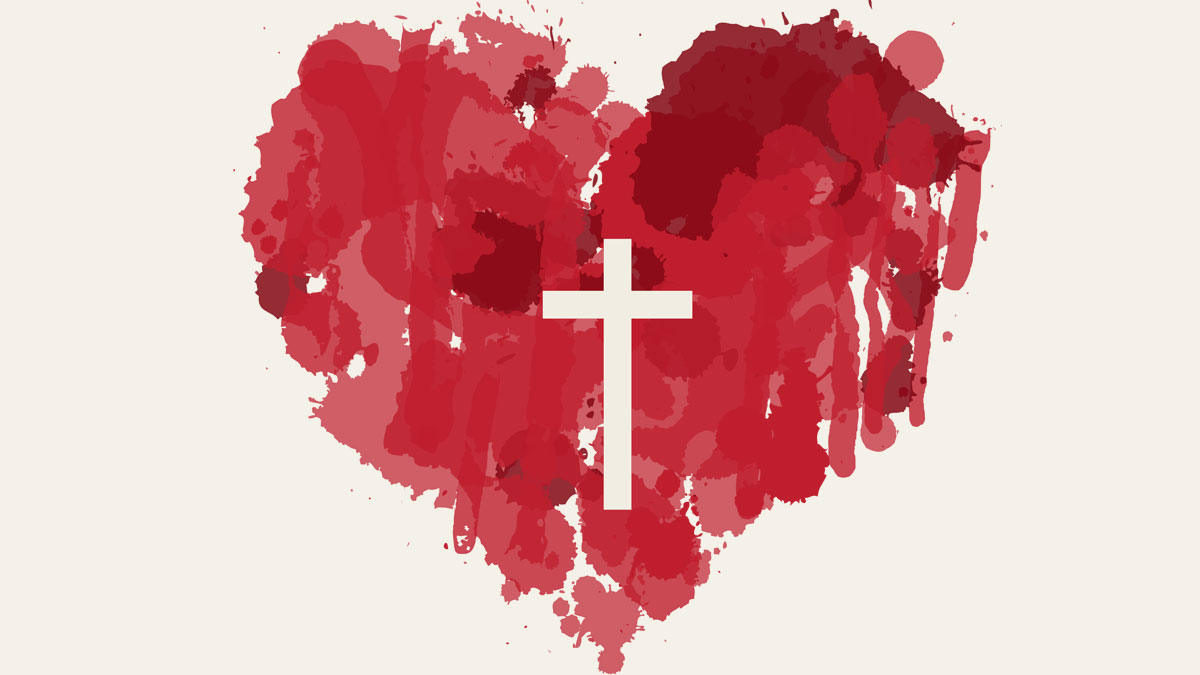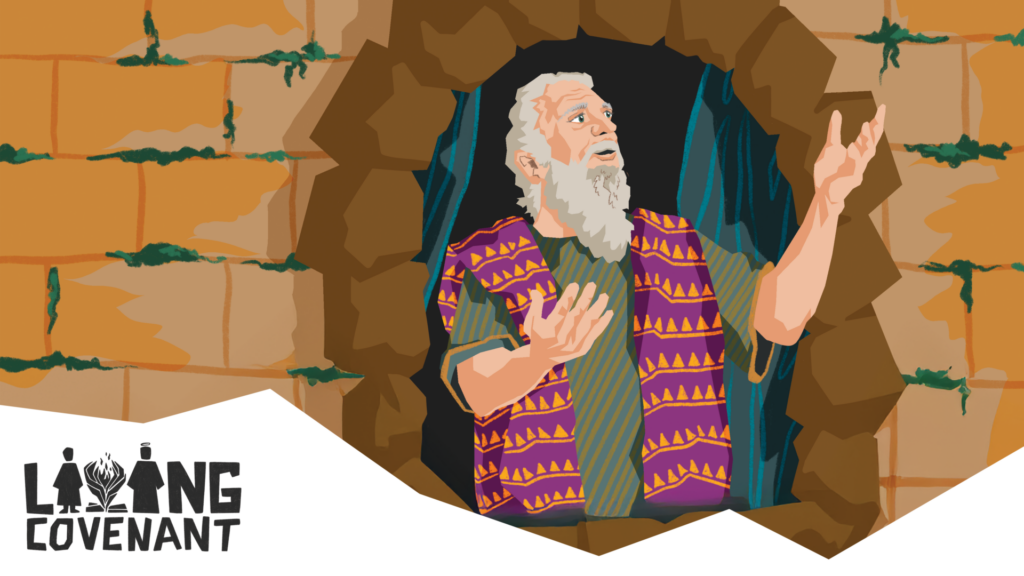Let’s take a moment to pan out . . . to the treetops, to the clouds, up past the sun, moon and stars to the heavenly realms (Ephesians 1:3). Let’s rewind to eons ago before planet Earth existed . . . when only God existed. God, who is three in one. Elohim, Yahweh, Creator God.
Let’s rewind back to a heavenly council when planet Earth was conceived in the heart of God—a world of magnificent human beings, created to reflect God in character—to be free agents, choosing to live in the vitality of love. This love wasn’t cheap. It was beautiful and deep, and always had the other’s best interests at heart. It never conceived of pain, getting ahead or being better than. It always served.
The Godhead was filled with a bubbling joy at the beautiful creation they had in mind. But then there was a pause . . . what if this creation chose the other way? The way of Lucifer, the fallen one, who chose self-exultation and coveted Jesus’ place. He chose to use free will for himself and evil was conceived. There was war in heaven (Revelation 12:7) and arguments, betrayals, lies and anger followed. Lucifer would now be known as Satan.
What if Satan interfered with the human race and led them astray? What if the Godhead’s hopes for love between themselves and humanity turned into a recipe for death, because humanity chose Satan’s ways? Without God’s life-giving love, eternal death would come.
The Son, Jesus, raised His hand and spoke up. “I’ll give my life for them if it comes to that.”
A dreadful silence followed this spoken moment. Jesus was promising to give His life for humanity from the foundation of the world (Revelation 13:8). It was absolutely horrific to consider a separation of the Godhead–because that is what this would require, if it was needed. There would be a severing unlike any other.
Let’s return to planet Earth in 2025 for a moment. Think about the person you’ve got the strongest bond with. The one who lights you up, who you long for when you’re apart, who you delight in and adore. Have you got that person? You have only an inkling of the bond and love that the Godhead had for each other, which they were willing to sacrifice for humanity.
Only a short time after humanity was created, the Promised One was needed—and there was no hesitation. God came looking for His lost humankind, and already He could see the negative effects of their choices: they hid from Him and their faces were not open. They were separated from Him and each other.
This separation needed repairing. So, Jesus made a promise to Satan:
And I will put enmity
between you and the woman,
and between your offspring and hers;
he will bruise your head,
and you bruise his heel.
(Genesis 3:15)
The Hebrew word for bruise can also mean overwhelm. Jesus would be overwhelmed by Satan, but in return Satan would be overwhelmed by Jesus.
Rewind to around 2000 years ago, to a modest home in a modest village. Actually, it was more than modest Nazareth around 1 BC was a village with a reputation. “Nothing good comes from Nazareth,” they’d say (John 1:46). There lived a young lady, a teenager, unmarried—though engaged. This woman was about to have the worst reputation in town. You can hear the news: “Did you hear about Mary? She’s pregnant! Her and Joseph aren’t even married!” This was a social disgrace, even deserving of death.
In this time, in this place and in these circumstances came Jesus, the Son. The Godhead acted in unison to save humanity and an angel visited Mary.
“Do not be afraid, Mary; you have found favour with God. You will conceive and give birth to a son, and you are to call him Jesus . . . The Holy Spirit will come upon you, and the power of the Most High will overshadow you. Therefore the child to be born will be called holy, the Son of God” (Luke 1:28-35 abridged).
Just like that, God the Son became human, and yet divine, in Mary’s womb . . . and the separation of the Godhead began. We know the story. Jesus was born in Bethlehem and grew up in Nazareth. While He was God, He was also man. Yet He loved with the love of God, not the love of man. Unlike Satan, Adam and Eve, and us—Jesus didn’t prioritise Himself and His desires, needs or curiosities. He chose others. He chose us. He became love personified. His life was one of care, courage and commitment towards us, to His much-loved human race.
This love took Him to the cross. The heart of the Easter story. He took the eternal death we deserve. As He made this decision in His humanness, He felt it might indeed be an eternal separation, an eternal sundering from oneness of the Godhead and from us.
As He wrestled in the garden of Gethsemane, with tears of blood, His heart was breaking as He contemplated the separation. He stood erect, calm in the face of jeers, enduring harsh questions and mockery from religious and Roman leaders, being beaten by the soldiers—and all along, continued to choose us. As He strained from muscle to muscle and aching limb to aching limb on the cross, He continued to choose us–He wanted us to have the opportunity for vitality and life that He and the Godhead had envisioned from the beginning. That love sustained Him and He didn’t falter in completing His promised mission.
Darkness covered the land for three hours as He hung and suffered the weight of things every person from Adam to the time of the end has ever thought, done and felt that was not in line with perfect love. He carried the pain of every victim of abuse, every slave, every forgotten child, every guilty offender, every war, every disaster, every injustice . . . and it crushed Him.
But what crushed Him even more was the separation from the Godhead. He cried, “My God my God, why have you forsaken me?” (Matthew 27:46). Little did He know that while God the Father couldn’t rescue Him and the fallen human race at the same time, the Father was with Him in the darkness. God breathed deeply and bore presence to the suffering of His Son, as would any father who loves his son with every fibre of his being.
“It was finished.” The breath of life left Jesus and there was a separation, a sundering, like never before and never again—all of heaven gasped in horror.
Yet, there was also hope . . . the question hovered: could perfect love conquer even eternal death?
Early Sunday morning, while stars still hovered in the sky and the light of dawn shimmered on the horizon, a heavenly messenger came with a joyous and thundering mission. He who gave His life for them was raised to life. Jesus rose to His Father. Love prevailed!
As a new day dawned on planet Earth, Mary, who anointed Him for burial, was the first to share the good news on which the gospel hinges. The tomb is empty! He has risen!
Jesus Messiah, God the Son from eternity past to eternity future, succeeded in overcoming the evilness of humanity. He made it possible for all of humanity to be connected back to Himself, if they so wish. They can choose to lead full and meaningful lives of service, certainty, hope and purpose. Not just now, but for eternity to come.
Therefore, the heart of the Easter story is captured in this verse: “Greater love has no man than this, that a man lay down his life for his friends” (John 15:13).
Jessica Bishop is a wife, mother and clinical psychologist who is passionate about living the life she is called to by God. She and her family live on the Gold Coast, Qld.






